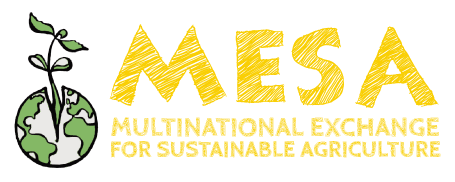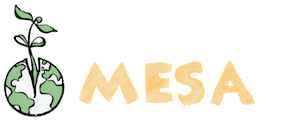<- Return to Listings | Copy | |
Host Training Plan
New Morning Farm
| Name | Jennifer Glenister | [email protected] | |
| Steward(s) Selected | Samuel Njuru Mwangi – | ||
| Training Start Date | 04/01/2023 | Training End Date | 11/20/2023 |
| Steward Training Hours per Week | 40 | ||
| Compensation (Stipend or Wage) | Regular SAGE Stipend – $700/mo. (MESA sends to Steward via our monthly Host fee) | If Yes, how much/how often? | [1156] |
| Non-Monetary Compensation and Estimated Value | Housing: $500/mo Full Board: $500/mo Local Transportation: $100/mo |
| Name of your Workers’ Compensation Carrier | NorthStone Insurance Company |
| Will your Workers’ Compensation policy cover the Steward? | Yes |
| Number of Employees at training location | 16 |
| Number of Interns/Trainees/Apprentices at training location | 3 |
| Annual Revenue | $0 to $3 Million |
[Phase 1]
| Phase Name | Spring Planting and Orientation | ||
| Start Date of Phase | 04/01/2023 | End Date of Phase | 05/31/2023 |
| Primary Supervisor during this phase | Jennifer Glenister | Supervisor Title | Farmer |
| [email protected] | Phone Number | 814 448 3904 | |
| 1. Describe the Trainee/Steward’s role for this phase |
|
Trainee will orient and train in our daily farm systems including both production of vegetables and retail marketing. |
| 2. Specific goals and objectives for this phase |
|
Safety Training, Daily Communication and Recordkeeping Training, Spring Tunnel Vegetable Production Training, Retail Market Training, Spring Vegetables in the Field |
| 3. Primary Supervisor’s qualifications |
|
Jennifer Glenister, New Morning Farm owner, 14 years diverse organic vegetable experience including leading and training apprentice vegetable growers for 10 years. Master Grower with PASA Farming’s Diversified Organic Vegetable Grower Apprenticeship Program |
| 4. What plans are in place for the Trainee/Steward to participate in cultural activities while in the United States? |
|
Trainee will be a key member of our farm community and join in all our activities including, weekly potlucks and celebrations. Spring activities may include, local firehouse days, visit to neighbor farm and orchards in bloom, weekly potlucks, and birthday celebrations. |
| 5. Specific knowledge, skills, or techniques to be learned during this phase? |
|
Safety Training: Worker Protection Standard Training, Food Safety Training, New Morning Farm Safety Policies, Tractor Safety |
| 6. How specifically will this knowledge, skills, or techniques be taught? Include methodology of training and chronology/syllabus. |
|
Training will be primarily through demonstration and discussion by skilled teammate and farmer. We train, practice, and offer feedback to quickly build proficiency. Spring Training progresses each week as we continually begin to cultivate each successive crop, adding new plantings in the fields, new crops reach harvest, weather warms, and we open more of our retail markets. |
| 7. How will the Trainee/Steward’s acquisition of new skills and competencies be measured? |
|
Trainee will meet with farmer at least every 4 weeks to assess progress. |
| 8. Additional Phase Remarks (optional) |
[Phase 2]
| Phase Name | Summer Vegetable Production and Leadership Training | ||
| Start Date of Phase | 05/31/2023 | End Date of Phase | 09/30/2023 |
| Primary Supervisor during this phase | Jennifer Glenister | Supervisor Title | Farmer |
| [email protected] | Phone Number | 814 448 3904 | |
| 1. Describe the Trainee/Steward’s role for this phase |
|
Trainee will begin to take leadership and management of a crop, while training in all aspects of summer production of organic vegetables. |
| 2. Specific goals and objectives for this phase |
|
Summer Vegetable Production Training, Irrigation Training, Field Vegetable Pest Management Training, Weed Management Training, Workflow and Efficiency Training, Recordkeeping and Evaluating Crop Profitability, Principles of Soil Health and Fertility |
| 3. Primary Supervisor’s qualifications |
|
Jennifer Glenister, New Morning Farm owner, 14 years diverse organic vegetable experience including leading and training apprentice vegetable growers for 10 years. Master Grower with PASA Farming’s Diversified Organic Vegetable Grower Apprenticeship Program |
| 4. What plans are in place for the Trainee/Steward to participate in cultural activities while in the United States? |
|
Trainee will be a key member of our farm community and join in all our activities including, weekly potlucks and celebrations. Summer activities may include, Lake Day and cook out, outdoor concerts at local state park, visits to county fair, and gathering of vegetable and grazing apprentices. |
| 5. Specific knowledge, skills, or techniques to be learned during this phase? |
|
Irrigation Training: monitoring and evaluating soil moisture, plant water needs for optimal yields, Drip Irrigation Basic Components, Drip Irrigation Advantages and Challenges, Overhead Irrigation Basic Components, Overhead Irrigation Advantages and Challenges |
| 6. How specifically will this knowledge, skills, or techniques be taught? Include methodology of training and chronology/syllabus. |
|
Training will be primarily through demonstration and discussion by skilled teammate and farmer. We train, practice, and offer feedback to quickly build proficiency. Summer training progresses week by week as we to add plantings of new crop families, and harvest the summer crops, manage summer weeds, irrigate, and market through the height of the growing season. |
| 7. How will the Trainee/Steward’s acquisition of new skills and competencies be measured? |
|
Trainee will meet with farmer at least every 4 weeks to assess progress. |
| 8. Additional Phase Remarks (optional) |
[Phase 3]
| Phase Name | Fall Vegetable Production and Business Training | ||
| Start Date of Phase | 09/30/2023 | End Date of Phase | 11/20/2024 |
| Primary Supervisor during this phase | Jennifer Glenister | Supervisor Title | |
| [email protected] | Phone Number | 8144493904 | |
| 1. Describe the Trainee/Steward’s role for this phase |
|
Trainee will learn about fall vegetable production, longterm storage, and basics of business management. |
| 2. Specific goals and objectives for this phase |
|
Fall Crop Harvests Training, Longterm Storage Systems and Training, Fall Tunnel Vegetable Production, Basics of Business Financial Statements, Risk Management, Crop Planning, Soil Health through The Winter, Fertility – Fertigation and Foliar Feeding |
| 3. Primary Supervisor’s qualifications |
|
Jennifer Glenister, New Morning Farm owner, 14 years diverse organic vegetable experience including leading and training apprentice vegetable growers for 10 years. Master Grower with PASA Farming’s Diversified Organic Vegetable Grower Apprenticeship Program |
| 4. What plans are in place for the Trainee/Steward to participate in cultural activities while in the United States? |
|
Trainee will be a key member of our farm community and join in all our activities including, weekly potlucks and celebrations. Fall activities may include, visits to two neighboring vegetable farms, Halloween Costume Party, and Fall Harvest Dinner. |
| 5. Specific knowledge, skills, or techniques to be learned during this phase? |
|
Fall Crop Harvests: how to lead larger crews, how to use harvest belts, Handling vegetables for long storage, |
| 6. How specifically will this knowledge, skills, or techniques be taught? Include methodology of training and chronology/syllabus. |
|
Training will be primarily through demonstration and discussion by skilled teammate and farmer. We train, practice, and offer feedback to quickly build proficiency. Fall training progresses week by week as we to add plantings of fall and winter crops, and harvest the big fall crops, manage fall weeds, finish irrigating, establish cover crops, and market through the end of the growing season. |
| 7. How will the Trainee/Steward’s acquisition of new skills and competencies be measured? |
|
Trainee will meet with farmer at least every 4 weeks to assess progress. |
| 8. Additional Phase Remarks (optional) |

